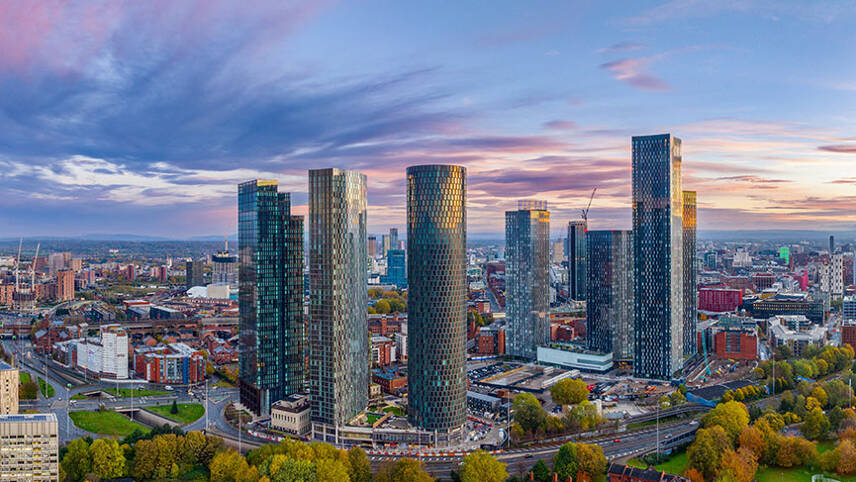Register for free and continue reading
Join our growing army of changemakers and get unlimited access to our premium content

Pictured: Manchester
The manifesto for the North is being delivered by a coalition consisting of more than 800 businesses, along with education and political figures at the annual Convention of the North.
The new manifesto calls for a new strategic approach to energy, trade, investment and transport to transform the region into a powerhouse that boosts the national economy while assisting with the net-zero target for 2050.
The organisations will call for the next Government to help them develop plans that would grow the regional economy by £100bn and deliver a million new jobs by 2050.
Tracy Brabin, Mayor of West Yorkshire, said: “With the North set to become England’s first truly devolved region, we have a historic opportunity to turn the tide and build a stronger, better-connected, greener and more vibrant North for the over 13 million people we represent as mayors.
“But to do that, we need the fair investment our people deserve. That’s what I’ll be urging Michael Gove and Angela Rayner for when I see them tomorrow, and that’s what our Manifesto for the North will deliver – practical yet radical plans to yank the UK’s economy out of neutral and deliver on our shared vision for a brighter North.”
The manifesto states its intentions to create a Northern energy strategy to harness the power of renewables that could heat and power the entire region. This strategy would tap into regional sources such as tidal energy from Merseyside and giant windfarms in Cumbria.
Doing so, the manifesto states, could reduce the North’s emissions by more than 70 million tonnes by growing the nation’s renewables capacity. Currently, the North accounts for more than half of England’s renewable energy.
Igniting this change will require more public investment, with organisations calling for an extra £1,500 of public investment per person, per year just to close the gap with the rest of England.
Indeed, data published by NP11 and Transport for the North, found that this type of level funding would help the region’s economy grow by £118bn by 2050.
Additional measures outlined in the manifesto include creating a new trading bloc of Northern cities to promote the region’s “super-sectors” of Advanced Manufacturing, Energy, Health Innovation and Digital. Currently, investment into Northern R&D has risen from £4bn to £5bn, but this is still far behind London, which sits at £20bn.
Specifically, the new plan calls for bus services to be re-regulated and reformed, warning that more than three million people are at risk of “social exclusion”, due to unreliable and unaffordable public transport.
Funding for rail is also a focus, with the coalition arguing for more wider social and economic benefits to be baked into financial decisions to prioritise new lines outside of London – particularly Northern Powerhouse Rail from Liverpool to Leeds through Bradford.
Back in 2022, businesses and universities across the North West of the UK launched a plan to unlock 660,000 green jobs to help the region reach net-zero emissions by 2040.
Convened through the Net Zero North West coalition, the North West Business Leadership Team (NWBLT) and academic institutions including Manchester Metropolitan University, a host of organisations across the region have pledged to create a “Net Zero Skills Charter”.
While demand for green jobs has grown in every UK region according to PwC, the North is at risk of being left behind.
PwC warned that there is an “ever-growing gap in new green trades jobs, which are more prevalent in other parts of the country, and which are equally vital to the net-zero transition”.
The risk is most significant for the North East. Around 7,600 green jobs were advertised here during the 21-month period assessed, compared to some 110,000 in London and the South East.


Please login or Register to leave a comment.